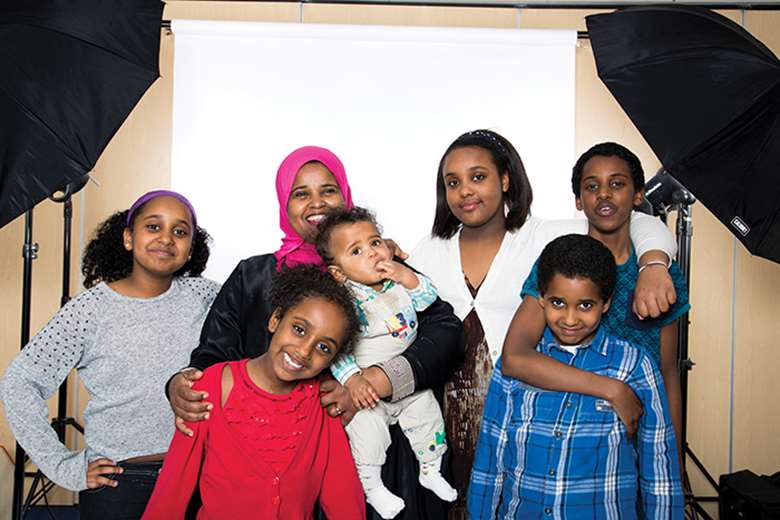Sandwell Family Partners
Neil Puffett
Tuesday, January 2, 2018
Practitioners identify issues vulnerable families may face and work collaboratively to resolve them.

- Each family partner practitioner works with at least 18 families a year
- Of families that completed the programme, 96 per cent have achieved positive outcomes
ACTION
Family Partners, run by charity Action for Children, is an intensive family support project with a number of aims: keeping children out of care; helping parents into work; reducing children's involvement in crime; making parents more confident; and addressing families' mental health problems.
Local agencies, such as schools, health visitors and social workers make referrals if they are concerned that children may be showing early signs of neglect that are below child protection thresholds. Over 22 weeks, family partners works with the family to address problems they may be facing.
The first phase, which lasts for four weeks, is about engaging the family.
"The crucial thing is to build a relationship and create trust - you need to develop an open and honest relationship with the family," says Laura Colley, Family Partners co-ordinator.
"The first four weeks is about getting into the home and, meeting everybody, getting to know them, understand the dynamics and what the issues are, and understand what is going well and what isn't."
During this period, Colley says the practitioner will try to identify an "early hook" - an issue that can be resolved relatively easily, such as identifying grant funding for a washing machine or piece of furniture, or support for the parents to attend an appointment.
"We do that to prove that we will be there, and that they can trust us," Colley says.
"It is about getting them to invest in us."
This is followed by phase two - a 12-week period during which most of the support work takes place. The project looks to provide support to address a range of issues, but if there is anything it cannot help with it refers the family to specialist services. Issues that families need help with could include behaviour management, or mental health problems, or managing finances.
A common problem is that families living in private rented accommodation can be too afraid to raise problems with their landlord for fear of eviction.
"We can help by referring them to the right people and getting necessary repairs done without the risk of eviction," Colley says.
Colley says the team strives to ensure that, during the support stage, they are not creating a dependency situation - whereby the family grows to need their help.
"We start off holding their hands - making appointments for them and taking them to appointments in order to build their confidence - but we want to empower them and we gradually do less so that they are able to do it for themselves. We want to empower and support them."
The final phase consists of a six-week period that involves assessing progress made and looking to ensure that support networks are in place, so that, if problems do occur, they know where to get help.
"We may link them to things going on in a children's centre and give them telephone numbers for various support networks," Colley says.
"It has to be a very carefully planned exit because you have been working with them for 22 weeks, so it is quite a long time. More often than not you will look to put them onto a parenting course to consolidate the one-to-one support we have given them."
IMPACT
The cost of running Sandwell Family Partners service for one year with two dedicated practitioners is just under £60,000. Each family partner works with at least 18 families, meaning the service supports at least 36 families a year. This puts the cost at just £1,666 per family, or a little over £11 per day over the 22-week period.
Of families that completed the programme, 96 per cent were found to have achieved positive outcomes. In 83 per cent of cases, the child successfully improved their relationships with a significant other, or others.
In 69 per cent of cases, there was an improvement in the mental health of parents or carers, and in 68 per cent of cases, there was an improvement in a child's emotional or mental wellbeing. Meanwhile, in 67 per cent of cases, domestic abuse was addressed and concern about a child reduced.
This article is part of CYP Now's special report on early help. Click here for more




